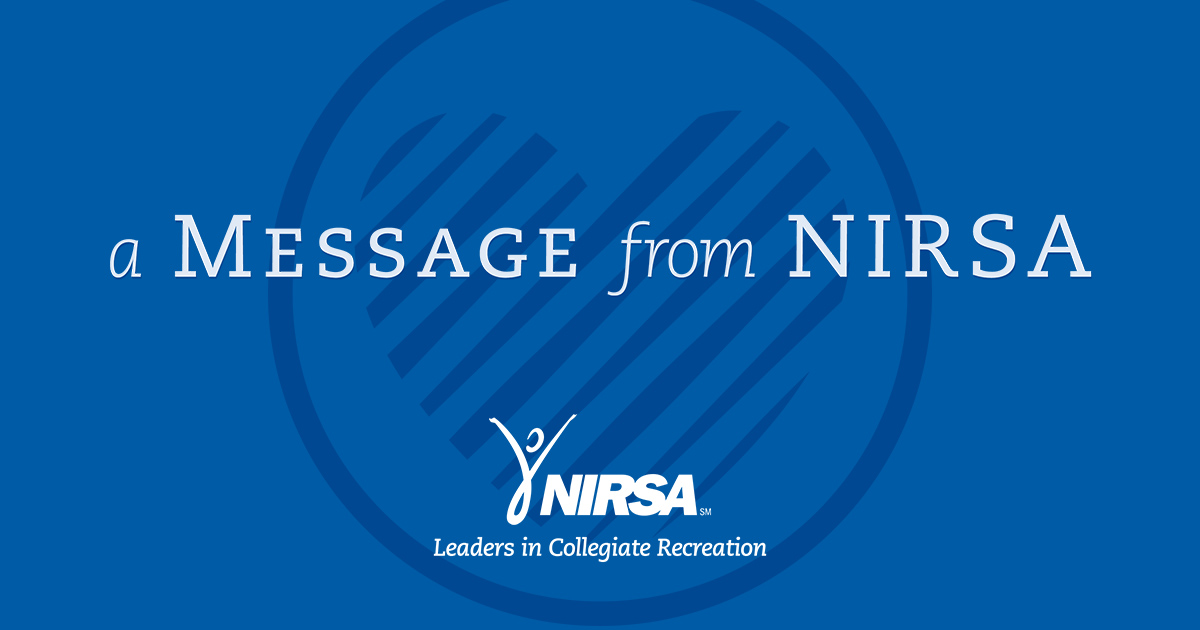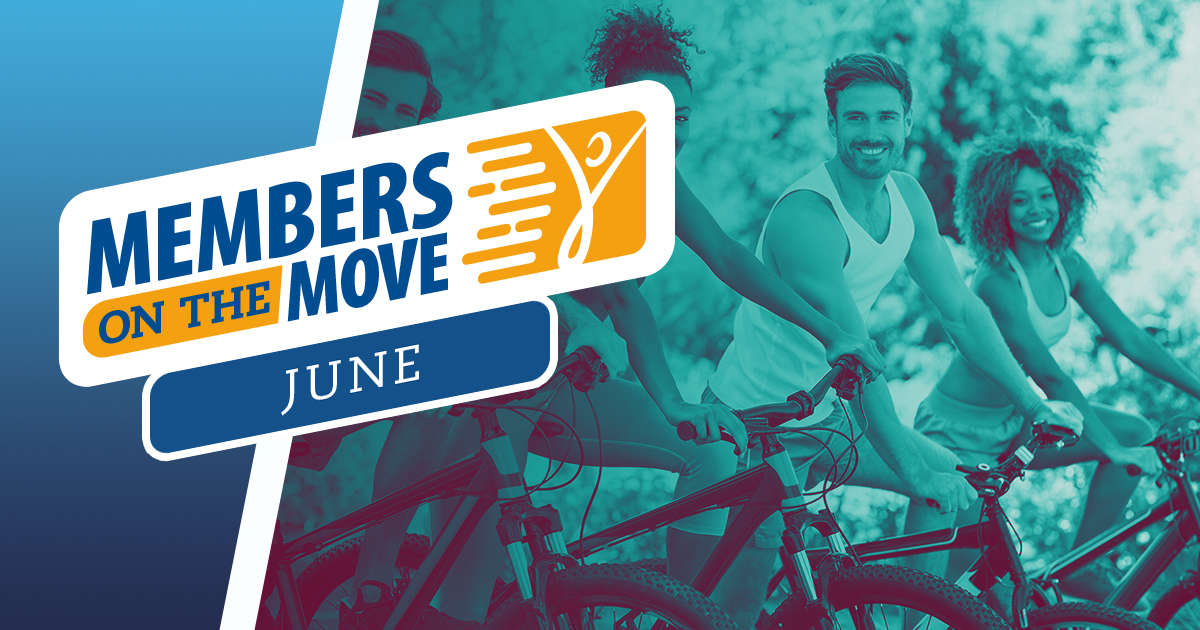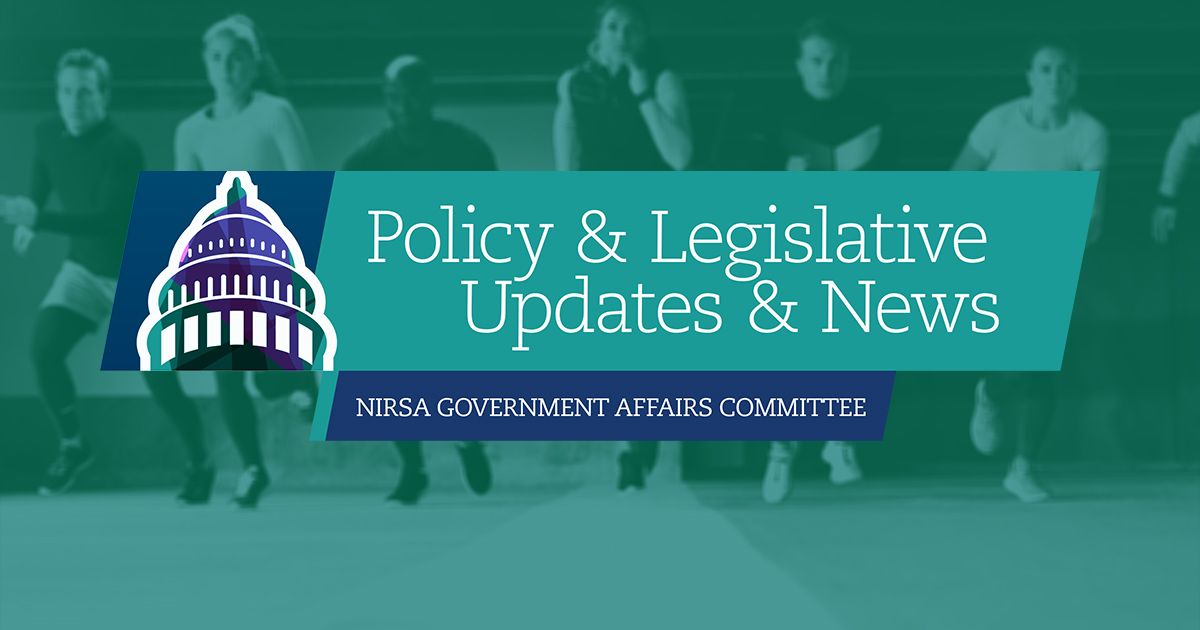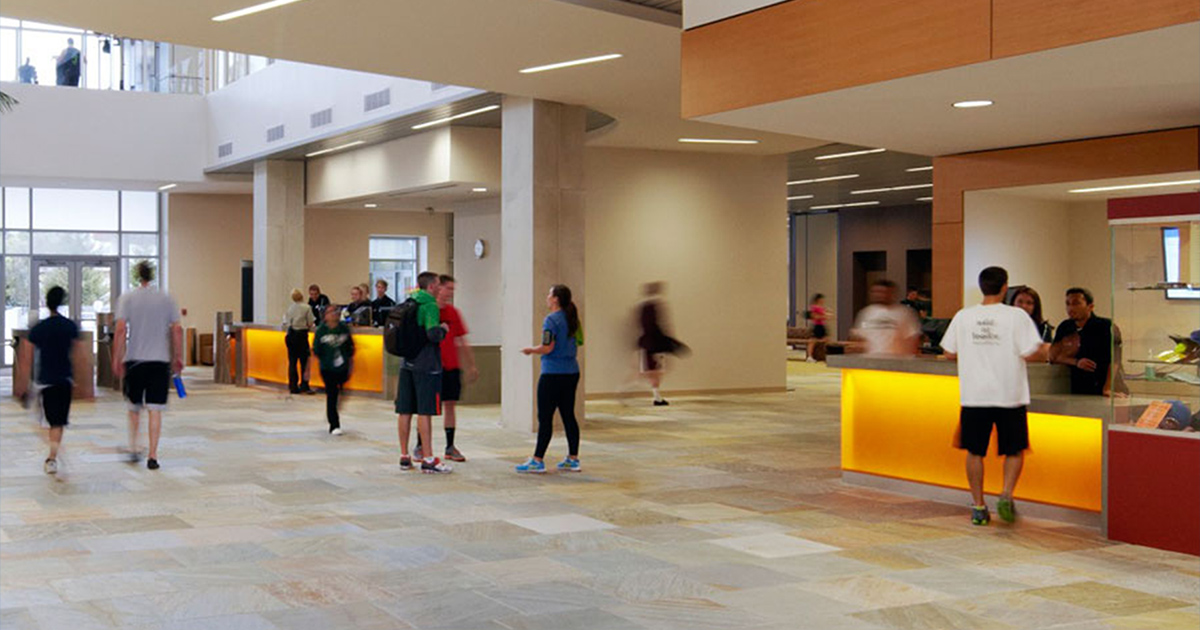We are soon approaching the verdict of the Derek Chauvin trial. Nearly a year ago, Chauvin – a white law enforcement officer of the Minneapolis Police Department – murdered George Floyd – an unarmed Black man – and systemic racism was, again, catapulted into the world’s spotlight. Once again, activism and demands for a reckoning with racism – in all forms – persists.
To say a lot has happened in this past year would be an incredible understatement. Yet, in a year dominated by innovation and, yes, pivots, amidst a stream of unprecedented events, tthe systemic racism Floyd’s killing pushed into the spotlight was very much precedented.
NIRSA, like all communities, has been called to reexamine its own structures and history, as well as to provide members opportunities to lean into both learning and community. Nearly one year ago, NIRSA members were called together “in solidarity and action” to learn together, support each other, and collectively do better.
While there is still so much work to do, we are encouraged by member response: the building and growth of identity-based caucuses; participation in the 21-Day Challenge (and the ways so many have adapted it for their own campuses and staff throughout the year); engagement in learning opportunities, such as Talks with Tiffany; and elevating some of the incredible voices, experiences, and leadership through series like Pioneering the Way. We’ve watched members have difficult conversations when needed. We’ve heard stories of you challenging colleagues and supervisors. We’re lucky to have had members challenge and push us, as your Board of Directors, to know and do better for our members.
Yet, while there is much to celebrate from this past year, and so much momentum to continue, there is also the reality that systemic racism is deeply imbued in our society. For marginalized communities its presence is constant and extends well beyond the incidents that capture the news cycle. The trauma this creates is real and deep and personal. If you do not feel or experience this, someone in NIRSA you know does.
BIPOC individuals continue to experience violence at higher rates and remain disproportionately affected by the the economic and health impacts of the global inequities, amplified by the COVID-19 pandemic. Many will continue to suffer threats to individual and community health and wellbeing because of discrimination and bias that remain systemically protected and even enshrined.
Whether or not you have been following this particular trial closely, please understand that, for many, the trial of Derek Chauvin will symbolize how far the United States has—or hasn’t—come in responding to the racial reckoning of the past year.
In NIRSA, the best resource we have is each other. So stay connected, check-in on each other, and give yourself, your colleagues, and your students space for both grief and for hope. Stay committed to learning and leaning into uncomfortable conversations. Continue setting the bar high for NIRSA by holding leaders accountable for meaningful progress. Keep building communities where diversity is celebrated, equity is promoted, and all feel included. #HumansofNIRSA
- For more information, please contact a member of NIRSA’s Government Affairs Committee.
Craig Decker, RCRSP, is currently the Director at Centers LLC at the University of Alabama at Birmingham. Craig is also the 2020-2021 Chair of the NIRSA Member Network; you can email him at craigd@uab.edu.
Learn about the NIRSA Board of Directors here.
Pam Watts is currently the Executive Director at NIRSA.










